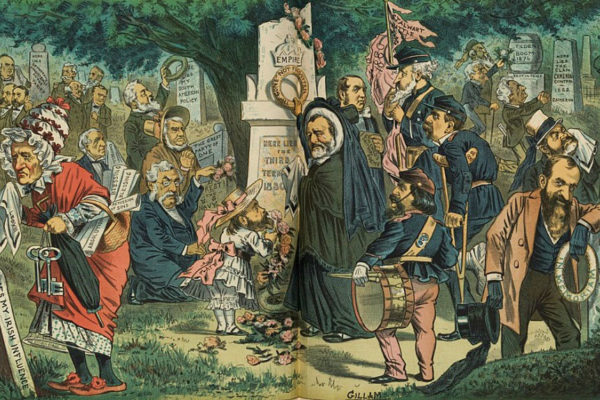5 Facts About When Decoration Day Started

Decoration Day, later recognized as Memorial Day, has a rich history tied to the remembrance of those who gave their lives in service to their country. This day holds a special place in American hearts, not just as the unofficial start of summer but as a moment to honor the fallen. Here, we dive into five lesser-known facts about when Decoration Day began, its evolution, and why it matters today.
1. The Origins in the Civil War

The genesis of Memorial Day is often traced back to the period immediately following the Civil War. While various towns claimed to have initiated what was known as Decoration Day, one of the earliest recorded commemorations occurred in:
- Charleston, South Carolina, on May 1, 1865.
Here, Freedmen, along with local missionaries and teachers, conducted a ceremony to honor the Union soldiers who died in captivity. This event could be viewed as one of the first recognized Decoration Days.
2. General Order No. 11

Decoration Day became an official, annual event when:
- On May 5, 1868, General John A. Logan, head of the Grand Army of the Republic, issued General Order No. 11, proclaiming May 30 as a day to decorate the graves of soldiers with flowers.
Logan chose this date because it wasn’t the anniversary of any particular battle, ensuring all soldiers would be honored equally. While the date was chosen for its neutrality, it wasn’t universally accepted or observed in the South, which continued with its separate commemorative days until after World War I.
🌿 Note: Although General Logan is credited for popularizing Decoration Day, earlier commemorations did occur locally.
3. A Nationwide Tradition

After its formal establishment, Decoration Day was observed across the nation, although in different ways:
- Some states had their own versions, honoring not only Civil War veterans but soldiers of earlier conflicts as well.
- It was only after World War II, when the term “Memorial Day” started to be used more commonly, did the observance become more uniform across the United States.
The transformation from a day honoring Civil War dead to a more encompassing memorial day mirrors the country’s transition towards a more united national identity.
4. Transition to Memorial Day

Over the years, Decoration Day gradually morphed into:
- Memorial Day after the end of World War I, especially as more states began recognizing the day to honor those lost in all American wars.
- In 1971, Memorial Day was declared a federal holiday, moving from May 30 to the last Monday in May, to provide a three-day weekend for federal employees. This change stirred some controversy among traditionalists who viewed the shift as diluting the solemnity of the observance.
5. The Legacy Continues

Today, Memorial Day:
- Is marked by parades, the National Moment of Remembrance at 3 p.m., and the decoration of graves with American flags.
- Includes special tributes to those who made the ultimate sacrifice. While the day has become synonymous with barbecues and the start of summer, the core reason for its establishment remains.
The evolution from Decoration Day to Memorial Day encapsulates America’s journey through conflict, unity, and remembrance, ensuring that the sacrifices of our nation’s heroes are not forgotten.
In retrospect, Memorial Day's journey from a local tradition to a nationally recognized event highlights the evolving ways in which a nation remembers its fallen. From its Civil War roots to its transformation into a day commemorating all who died serving the United States, Memorial Day continues to evolve, yet it remains rooted in the solemn duty to remember and honor those who sacrificed everything for the freedoms we enjoy today.
When was Memorial Day first observed?

+
Memorial Day, originally known as Decoration Day, was first observed in 1865 in Charleston, South Carolina, and became an official day of remembrance on May 30, 1868, following General John A. Logan’s order.
Why was May 30 chosen for Decoration Day?

+
May 30 was chosen because it was not the anniversary of any significant Civil War battle, allowing the day to honor all soldiers equally.
How did Memorial Day become a national holiday?

+
In 1971, Memorial Day was officially recognized as a federal holiday through the Uniform Monday Holiday Act, shifting the date to the last Monday in May.
What is the National Moment of Remembrance?

+
This is an act of remembrance at 3 p.m. local time on Memorial Day, encouraging Americans to pause and reflect for one minute in honor of those who died in military service.